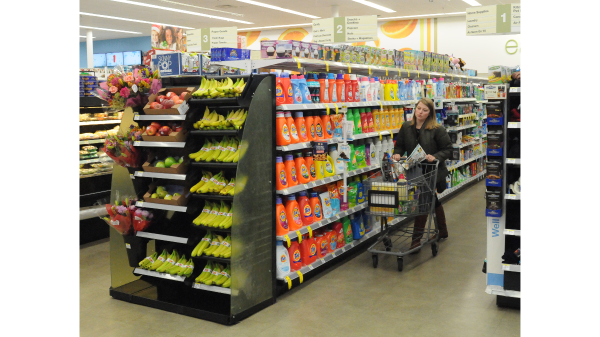I love it when things come full circle. In this case, the retail experience.
Retailers have been complaining about increased shrinkage. CNN Business reports: “Retail shrink hit $94.5 billion in 2021, a 53% jump from 2019, according to the National Retail Federation’s annual survey of around 60 retail member companies. (The largest contributor to shrink is customer theft, but the metric also includes employee theft, human errors, and other losses.)” The real reasons stores are closing in big cities | CNN Business

The importance of shrinkage in the retail apocalypse is debated. Target contends that it has been battling heightened shrink and “organized crime.”
Some say these threats have been overstated, Stores say shoplifting is a national crisis. The numbers don’t back it up | CNN Business partly because shrink is an all-encompassing scapegoat for any number of unexplained losses.
Shrink is an “issue where you’ve got a problem, but there’s no way to know exactly where the losses are coming from,” said Richard Hollinger, a retired professor of sociology and criminology at the University of Florida who has conducted studies of retail losses.
Indeed, shrink as a percentage of sales has hovered around 1.4 percent for the past decade, according to a survey from the National Retail Foundation.
“Maybe we cried too much last year” about merchandise losses, Walgreens finance chief James Kehoe acknowledged in January in response to earlier company claims that it was closing stores in downtown San Francisco because of increased shrink and organized crime. ‘Maybe we cried too much’ over shoplifting, Walgreens executive says | CNN Business
That hasn’t stopped Walgreens from creating a new, presumably shrink-resistant outlet on 2 East Roosevelt in downtown Chicago. New anti-theft Walgreens store has just 2 aisles of touchable merchandise – CWB Chicago
The store has two aisles of “essential” items, arranged on five-foot-shelves, so everyone can see what everyone else is doing. If you want anything else, you’ll have to order your item at a kiosk and pick it up at the counter (“Let us do the shopping,” says a sign.)
“A company spokesperson said Walgreens is ‘testing a new experience at this store with new concepts, technologies, and practices to enhance the experiences of our customers and team members’,” according to CWB Chicago.
“‘It will continue to offer retail products and pharmacy services, just with a new look and feel that focuses on shopping digitally for convenience. Inside the store, customers will find an area where they can pick-up orders, digital kiosks for placing an order, as well as an area to shop for essential items.’”
The CWB Chicago reporter described the experience as “weird.” For example, the kiosk register charged $2.89 for a $1.89 soda, an error that it required two clerks to correct manually.
So where does the full circle come in? As retail aficionados may remember, Piggly Wiggly introduced the first self-service retail grocery store in Memphis in 1916. America’s First Supermarket at 100: How It Changed the World | Time Before that, when you went to a grocery, you presented your list at the counter, and the clerk, a guy in a white apron with a pencil behind his ear, would go to the shelves and collect your items for you.
The days of clerks in white aprons is no doubt gone forever, but the same concept seems to be resurfacing in concepts like the Walgreens Chicago experiment.
I don’t know how this will affect shopping for produce (assuming that it or some similar model is implemented by retail grocery on a wide scale, say in the form of amplified online ordering for pickup). But if the industry goes back to full-service retail, I guess produce managers won’t have to worry about people squeezing the cantaloupes anymore.



